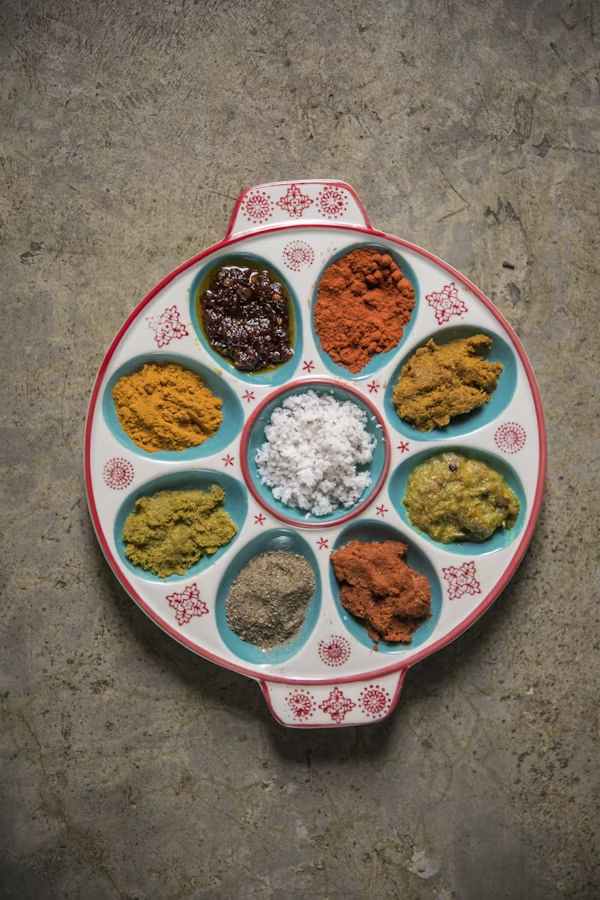
If you’ve noticed that your dinner table often features the same few dishes week after week, you’re not alone. Many people crave culinary adventure but stick to familiar meals out of habit or convenience. By incorporating Indian cuisine into your weekly meal rotation, you can bring a vibrant array of flavors to your dining experience, turning ordinary mealtime into something exciting. In addition to delighting your taste buds, Indian cooking offers a variety of impressive health benefits that might surprise you.
Health Benefits of Indian Spices
One of the standout reasons to include Indian food regularly is its vibrant use of spices. Far from being merely flavorful, many traditional Indian spices like turmeric, cumin, ginger, and coriander are celebrated for their medicinal properties. Turmeric, for example, contains curcumin, a potent anti-inflammatory compound that can support joint health and overall immunity. Ginger aids digestion, and cumin can contribute positively to heart health.
Diverse Flavors and Regional Varieties
Indian cuisine is incredibly diverse, making it easy to keep things interesting. Each region of India boasts unique flavors and cooking methods. South Indian cuisine is known for its robust curries with coconut-based gravies and tangy tamarind sauces, while Northern India offers rich, creamy dishes like butter chicken and savory vegetarian options such as saag paneer. Including Indian meals weekly introduces you to dishes that range from mild and creamy to intensely spicy.
Diet-Friendly Options
The versatility of Indian food allows it to cater effortlessly to diverse dietary needs. With a strong tradition of vegetarianism, Indian menus naturally feature numerous plant-based meals that are rich in protein and fiber, like chickpea curry (Chana Masala) or lentil stew (dal). Traditional Indian cooking emphasizes fresh vegetables, whole grains, legumes, and healthy fats, ensuring balanced meals that keep you nourished and satisfied.
Accessible and Convenient
Another compelling reason to bring Indian food into your weekly rotation is how easily you can access high-quality dishes. If cooking a new cuisine feels intimidating, ordering takeout or dining at reputable establishments, such as the Urban Tandoor Indian restaurant in Bristol in the UK can introduce you to authentic flavors and inspire your culinary adventures at home.
Promotes Healthy Eating Habits
Including Indian dishes regularly encourages healthier eating habits. Indian cuisine typically involves cooking with minimal processed ingredients, favoring fresh, wholesome produce, seasoned generously with spices rather than excessive salt or artificial additives. This natural approach supports a healthier lifestyle, potentially reducing risks associated with chronic health conditions like hypertension and diabetes.
Cultural Enrichment
Enjoying Indian meals weekly also provides an opportunity for cultural enrichment. Cooking and exploring Indian cuisine sparks curiosity about traditions, histories, and stories behind the dishes. It transforms mealtimes into a meaningful cultural exploration, enhancing the dining experience.
Conclusion
Incorporating Indian cuisine into your weekly meal rotation isn’t just a delightful experience for your taste buds; it’s a vibrant journey that nourishes your body and expands your cultural horizons. Immerse yourself in this rich tapestry of flavors and aromas—each dish is a symphony of spices that dances on the palate.
As you explore this culinary heritage, you’ll discover a variety of textures and ingredients that not only satisfy your hunger but also awaken your senses. Embracing Indian cuisine regularly will leave you grateful for the experience and provide you with a newfound appreciation for its diverse cultural significance.
Friends, what’s your favorite Indian dish? Please leave your favorites in the comments below.




1 Comment
All that sounds delicious.